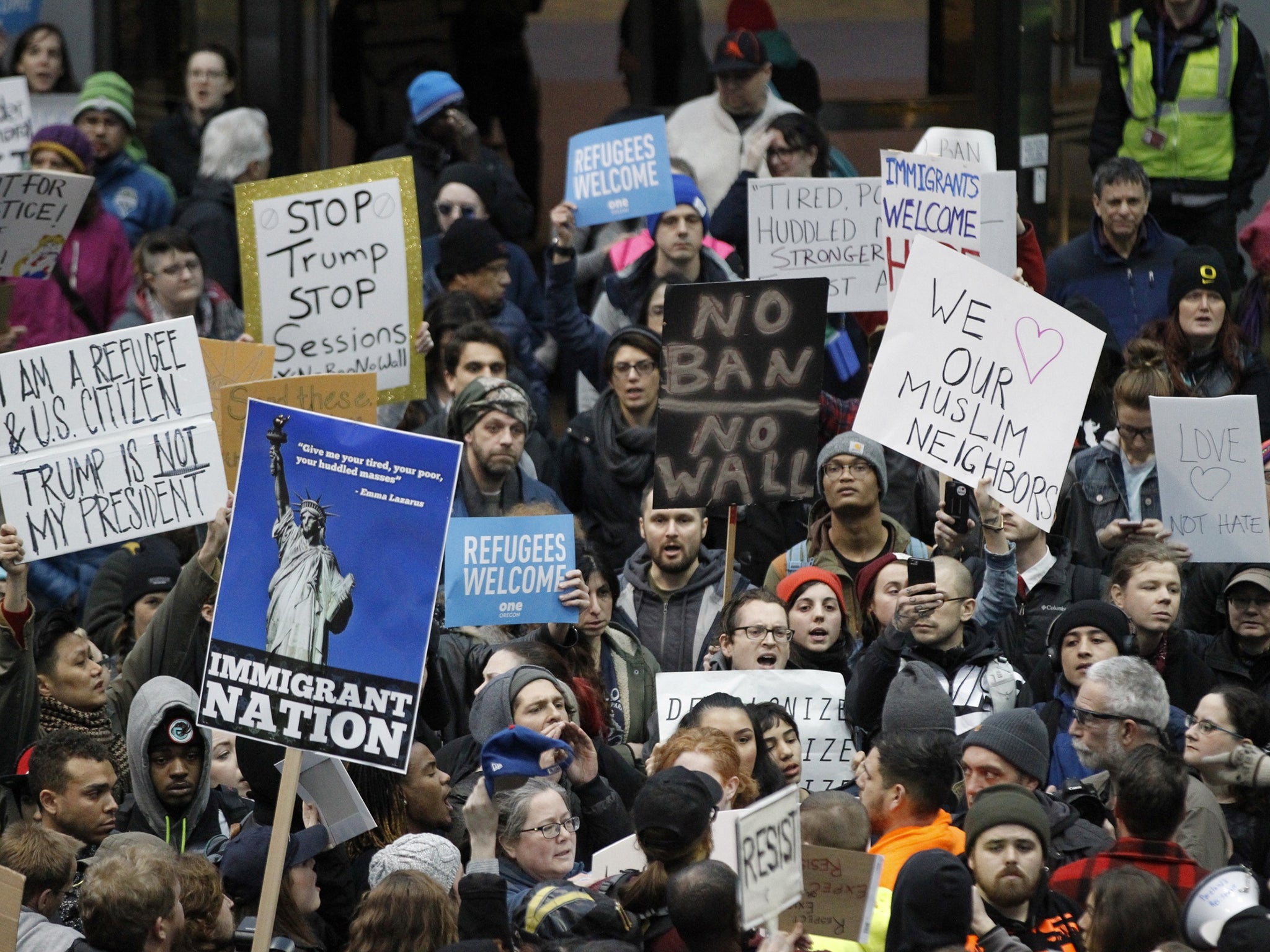Everything we know about Donald Trump's 'Muslim travel ban'
What the new US President ordered and what the global reaction has been

Your support helps us to tell the story
From reproductive rights to climate change to Big Tech, The Independent is on the ground when the story is developing. Whether it's investigating the financials of Elon Musk's pro-Trump PAC or producing our latest documentary, 'The A Word', which shines a light on the American women fighting for reproductive rights, we know how important it is to parse out the facts from the messaging.
At such a critical moment in US history, we need reporters on the ground. Your donation allows us to keep sending journalists to speak to both sides of the story.
The Independent is trusted by Americans across the entire political spectrum. And unlike many other quality news outlets, we choose not to lock Americans out of our reporting and analysis with paywalls. We believe quality journalism should be available to everyone, paid for by those who can afford it.
Your support makes all the difference.President Donald Trump signed an executive order Friday that makes major changes to America's immigration system.
The move has subsequently sparked confusion at airports, protests across the country and denunciations from leaders around the world.
A look at what Trump ordered and the reaction:
No entry
Trump's executive order temporarily suspends all immigration for citizens of seven majority Muslim countries for 90 days. They are: Iraq, Syria, Iran, Sudan, Libya, Somalia and Yemen. The order also calls for Homeland Security and State department officials, along with the director of national intelligence, to review what information the government needs to fully vet would-be visitors and come up with a list of countries that don't provide it. The order says the government will give countries 60 days to start providing the information or citizens from those countries will be barred from travelling to the United States.
Green card holders and dual citizens
Homeland Security Secretary John Kelly issued a statement Sunday declaring that, absent information indicating a serious threat to public safety and welfare, residency would be a “dispositive factor in our case-by-case determination.” That means citizens of the seven target countries who hold permanent US residency “green cards” will not be barred from re-entering the US, as officials had previously said.
Officials also clarified Sunday that dual citizens who are nationals of one of the seven target countries and a country that's not on the list will be subject to additional security screenings, but will likely be allowed through.
Refugees
Trump ordered a four-month suspension of America's refugee program. The suspension is intended to provide time to review how refugees are vetted before they are allowed to resettle in the United States.
Trump's order also cuts the number of refugees the United States plans to accept this budget year by more than half, to 50,000 people from around the world.
During the last budget year the US accepted 84,995 refugees, including 12,587 people from Syria. President Barack Obama had set the current refugee limit at 110,000.
The temporary halt to refugee admissions does include exceptions for people claiming religious persecution, so long as their religion is a minority faith in their country.
Syria
Trump's order directs the State Department to stop issuing visas to Syrian nationals and halts the processing of Syrian refugees. That will remain in effect until Trump determines that enough security changes have been made to ensure that would-be terrorists can't exploit weaknesses in the current vetting system.
Extreme vetting
Trump's order did not spell out specifically what additional steps he wants to see the Homeland Security and State departments add to the country's vetting system for refugees. Instead he directed officials to the review the refugee application and approval process to find any other security measures that can be added to prevent people who pose a threat from using the refugee program.
During the Obama administration, vetting for refugees included in-person interviews overseas, where they provided biographical details about themselves, including their families, friendships, social or political activities, employment, phone numbers, email accounts and more. They also provided biometric information, including fingerprints. Syrians were subject to additional, classified controls that administration officials at the time declined to describe, and processing for that group routinely took years to complete.
The response at home
Trump's order sparked an immediate backlash and sowed chaos and outrage, with travellers getting detained at airports, panicked families searching for relatives and protesters marching against the sweeping measure - parts of which were blocked by several federal courts.
Protests were held across the country, including in sight of the Statue of Liberty and Ellis Island in New York City and at international airports where travellers were temporarily detained.
The response abroad
Leaders of Britain and Germany joined other American allies in criticising Trump's entry ban, voicing anger and dismay, even as some far-right politicians expressed hope the move would inspire similar measures in Europe. The far-right National Democratic Party in Germany, for instance, celebrated “the massive restriction on the entry of pseudo-refugees and Muslims to the USA.”
A petition on the British Parliament's website, meanwhile, attracted hundreds of thousands of signatures backing its call for Trump, who has been invited to meet Queen Elizabeth II, to be barred on the basis of misogyny and vulgarity.
AP
Join our commenting forum
Join thought-provoking conversations, follow other Independent readers and see their replies
Comments